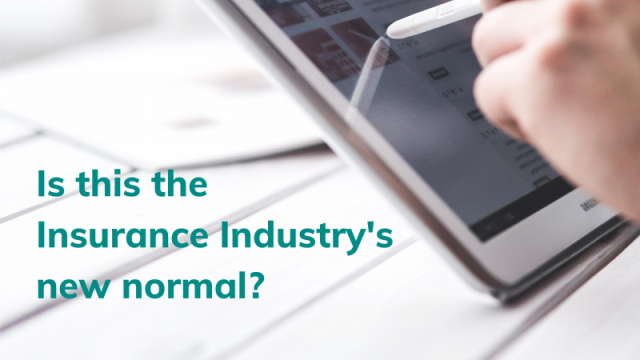Many insurance businesses have been forced to speed up their digital transformation efforts but could a hybrid business model be the industry’s future?
By Travys Wilkins
MON, JULY 27 2020-theG&BJournal– When government first announced a national lockdown back in March, countless businesses were left scrambling to make working from home, work. Sure, distributed work was probably on the cards for many of these companies but being forced to enable your entire team to work remotely in a matter of days is easier said than done.
A 2017 report (https://mck.co/3g3Zqxd) from McKinsey & Company, which focused on digital disruption in insurance, stated that CEOs cannot simply “sanction” digital transformation; they need to communicate their digital strategy with the company and then outline why it’s important to make the changes they’re planning to make. But when a global pandemic strikes, there isn’t much time to have these conversations. You need to act and adapt. And you need to do so as quickly as possible.
At SureStart (www.SureStart.co.za), as a digital-first business, we were lucky because we could make the transition to distance work fairly simply. But beyond the nuts and bolts of digitising and keeping things running internally, we’ve also seen a shift in consumer buying behaviour. Where insurance was traditionally sold via a broker face-to-face, social distancing measures mean that customers have had to get comfortable with buying insurance via digital channels.
And this is where things could get tricky for the industry.
For the most part, customers don’t buy insurance; they’re sold insurance. But in an online world, the onus is on the customer to seek things out. Until there is a mind shift on the consumer side – towards buying insurance, not being sold insurance – it’s likely that we’ll soon see a move back to pre-COVID norms. But this doesn’t mean that insurers should hold off on using this opportunity to leverage digital to automate and streamline their processes. In fact, I’d argue that the “new normal” will be a more hybrid model, with outbound staff complemented by digital channels.
This is especially important when it comes to client support staff.
Something a lot of people have struggled with during the lockdown is uncertainty. The businesses that have been open and transparent with their customers, those who have communicated effectively, are the ones who will come out of this looking good. If your advisors, call centre agents and brokers aren’t able to communicate with customers face-to-face, you need to make sure that there are other channels in place so that your clients aren’t left in the dark.
It’s about options
According to a recent Deloitte report, modern insurers need to understand that traditional principles don’t hold the same value as they used to. If insurers want to drive the disruption needed to stay relevant among consumers who expect seamless experiences at every touch point, they need to embrace a new approach.
Our shift to remote work happened fairly easily but that doesn’t mean that our lockdown experience has been hurdle free. We’ve seen losses due to product exposure in travel and entertainment, which emphasises the importance of product and distribution diversification.
Winston Churchill once said that you should never waste a crisis and I think this sentiment is especially true today. Businesses must use this situation to better prepare for the future. When you have the right solutions, technologies and strategies in place, it’s easier to adapt when things aren’t going according to plan.
Travys Wilkins is Executive Director at SureStart
|twitter:@theGBJournal|email: info@govandbusinessjournal.com.ng|








